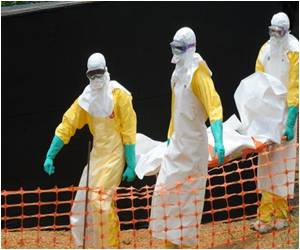Warnings of spread of Ebola beyond hard-hit Guinea, Liberia and Sierra Leone to neighbouring nations has been issued by WHO, adding that travel bans were not the answer.

Those countries are among 11 nations due to attend WHO-brokered talks on the crisis in Ghana next week.
To date, there have been 635 cases of haemorrhagic fever in Guinea, Liberia and Sierra Leone, most confirmed as Ebola. A total of 399 people have died, 280 of them in Guinea.
With the hardest-hit countries struggling to contain the outbreak, Sierra Leone announced on Friday that it was dedicating 1.3 million euros ($1.8 million) to a public education campaign on haemorrhagic fever.
Abubakarr Kamara, an official from the country's health ministry, said the funding would also help teams on the ground to carry out door-to-door health visits in the worst-affected areas.
Ebola, which is deadly in up to 90 percent of cases, is believed to be carried by animals hunted for meat, notably bats.
Advertisement
"Of course there are some controls, but we all know that all these borders are quite porous," he said, adding that draconian measures on travel would not help.
Advertisement
"If we try to institute measures that are going to be seen as restrictive by the population, we are going in fact to fuel the outbreak," he said.
"We favour dialogue with the affected families, the affected villages, the affected districts, rather than trying to be a sort of sanitary police."
- "Not out of hand" -
Last week, Formenty told AFP that a recent surge in cases was partly because efforts to contain the virus were relaxed too quickly after the outbreak appeared to lose pace in April.
"This failure of the system has created a clandestine chain of transmission that explains why we are where we are today," he said.
Medical charity Doctors Without Borders has warned the outbreak is out of control, although Formenty played that down.
"This is not out of hand," he said. "We have been able to control this outbreak in a number of places. In some other places it's been more difficult."
Ebola can fell victims within days, causing severe fever and muscle pain, vomiting and diarrhoea -- and in some cases, organ failure and unstoppable bleeding.
It spreads via bodily fluids including sweat, meaning you can get sick from simply touching an infected person, and with no vaccine, patients believed to have caught the virus have to be isolated to prevent further contagion.
Funeral rites involving touching corpses also pose a threat, but Formenty noted it had been difficult to spread that message, because the passing of a loved one was such a sensitive time.
"The only way we will succeed is when the people will understand clearly how dangerous it is for their lives to conduct unsafe burials during an outbreak of Ebola," he said.
Source-AFP










